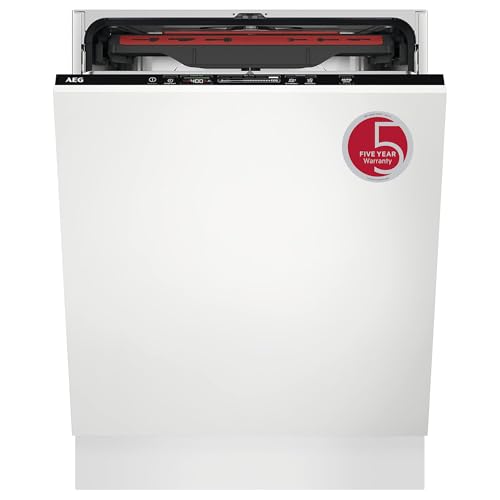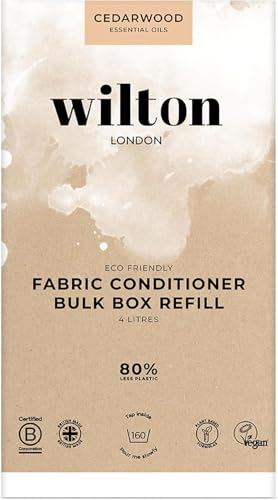




When it comes to doing laundry, it’s important to choose the right water temperature to ensure your clothes come out clean and fresh. Warm water is a popular option for many fabric types, as it strikes a balance between effectively removing dirt and stains, while still being gentle enough to preserve the quality of the garments.
But what exactly is the ideal warm water temperature for washing clothes? While there is no one-size-fits-all answer, experts generally recommend a water temperature between 40°C and 60°C (104°F and 140°F) for warm wash cycles. This temperature range is effective in breaking down and removing common dirt and stains, as well as killing bacteria and other germs that may be present on the clothes.
However, it’s important to note that not all fabrics are suited for warm water washing. Delicate materials, such as silk or wool, require cooler water temperatures to prevent shrinking or damage. It’s always best to consult the care label on your clothing to determine the recommended water temperature for washing.
TIP: In addition to the water temperature, using a quality detergent and proper washing technique are key factors in achieving clean and fresh clothes. Be sure to follow the instructions on the detergent packaging and consider using a pre-soak or stain remover for heavily soiled items.
In conclusion, warm water is an ideal choice for washing clothes, as it effectively removes dirt and stains, while still being gentle on most fabrics. However, it’s important to consider the specific care instructions for each garment and adjust the water temperature accordingly. By taking these factors into account, you can ensure that your clothes are properly cleaned and maintained, helping them last longer and look their best.
Why Warm Water Temperature Matters for Washing Clothes
Choosing the right water temperature when washing clothes is essential for achieving clean and fresh-smelling garments. While cold water may be suitable for some items, warm water temperature often yields better results. Here are a few reasons why warm water temperature matters for washing clothes:
1. Better Stain Removal
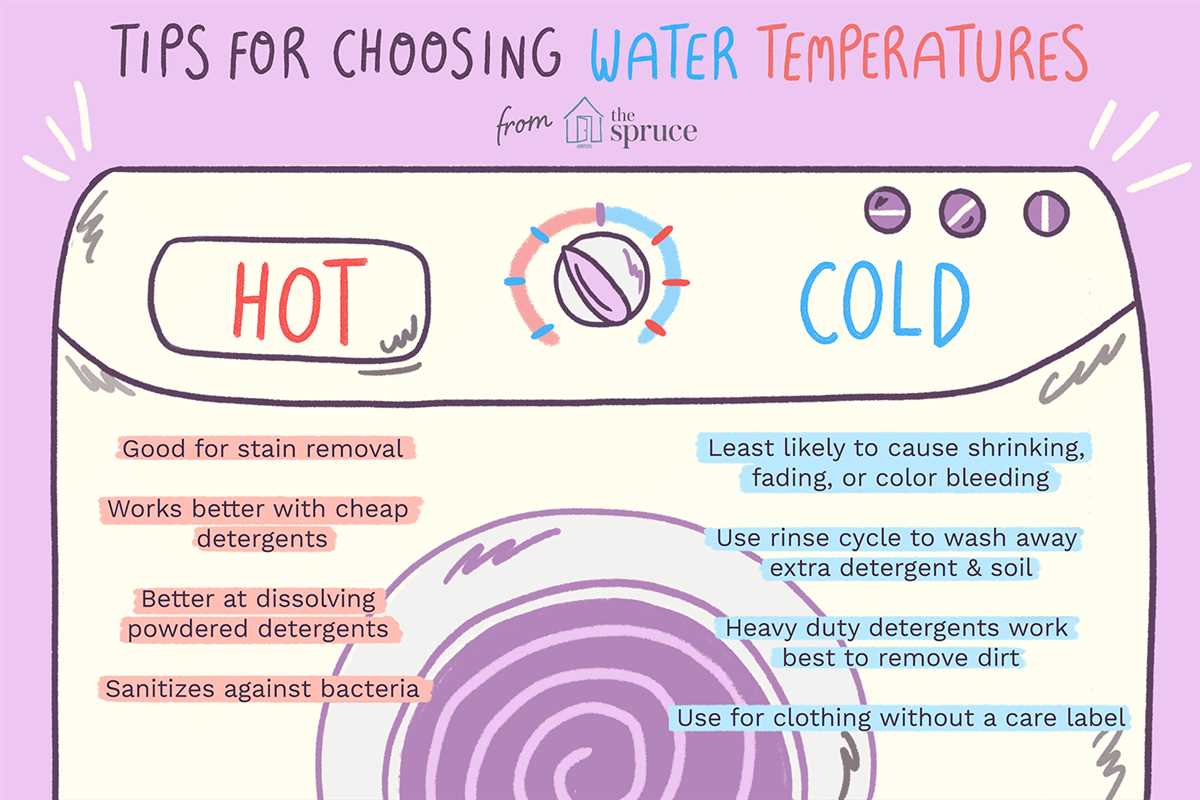
Warm water helps to loosen and dissolve stains more effectively. It is especially useful for removing oil-based stains like grease or makeup, as the warmth helps to break down these substances for easy removal. Additionally, warm water can help to remove common everyday stains like dirt or grass more effectively than cold water alone.
2. Enhanced Cleaning Power
Warm water temperature enhances the cleaning power of detergents and fabric softeners. When combined with the right laundry products, the warmth helps to dissolve dirt, bacteria, and odors from the fabric fibers. This ensures a deeper and more thorough clean, leaving your clothes feeling and smelling fresh.
3. Improved Fabric Softening
Warm water can also aid in softening fabrics. When garments are washed in warm water, the heat can help to relax the fibers, making them feel softer and more comfortable against your skin. This is particularly beneficial for towels, bedding, and other items that come into direct contact with your body.
4. Increased Efficiency
Using warm water temperature can also increase the efficiency of your washing machine. Warm water requires less energy to heat up compared to hot water options, resulting in energy savings and lower utility bills. Additionally, warm water may require less detergent and shorter wash cycles to achieve satisfactory results, further reducing energy usage.
5. Suitable for Various Fabrics
Warm water temperature is suitable for washing a wide range of fabrics. It is generally safe for most durable fabrics like cotton, polyester, and denim. However, it is essential to check the garment’s care label to ensure that warm water is appropriate, as some delicate or specialized fabrics may require cold water or gentle cycles.
Overall, using warm water temperature for washing clothes offers numerous benefits, including better stain removal, enhanced cleaning power, improved fabric softening, increased efficiency, and suitability for various fabrics. By selecting the right water temperature, you can optimize your laundry routine and ensure that your clothes come out clean and fresh every time.
The Role of Water Temperature in Washing Clothes
When it comes to washing clothes, water temperature plays an important role in achieving clean and fresh-smelling garments. Different temperatures can impact the effectiveness of the cleaning process, as well as the longevity of your clothes. Let’s explore the role of water temperature in washing clothes.
Hot Water
Hot water, typically around 130°F (54.4°C), is effective in removing tough stains and killing bacteria. It is best suited for heavily soiled and germ-infested items like underwear, socks, and kitchen towels. Hot water can help dissolve grease and oils, making it ideal for cleaning clothes stained with food or oil-based substances. However, using hot water excessively can cause fading and shrinkage in certain fabrics, so be cautious when washing delicate items.
Warm Water
Warm water, usually between 90°F (32.2°C) and 110°F (43.3°C), strikes a balance between cleaning power and fabric care. It is suitable for everyday clothing items that are not heavily soiled. Warm water effectively removes dirt, sweat, and odors without causing significant damage to most fabrics. This temperature is ideal for washing clothes made of cotton, linen, polyester, and other common materials.
Cold Water
Cold water, around 75°F (23.9°C) or lower, is gentle on fabrics and helps prevent color fading and shrinkage. It is suitable for delicate items like lingerie, silk, wool, and any clothes with vivid or dark colors. Using cold water is also an environmentally friendly choice, as it consumes less energy than warm or hot water. However, cold water may not be as effective in removing tough stains or killing bacteria, so it’s important to pre-treat stained areas before washing.
Conclusion
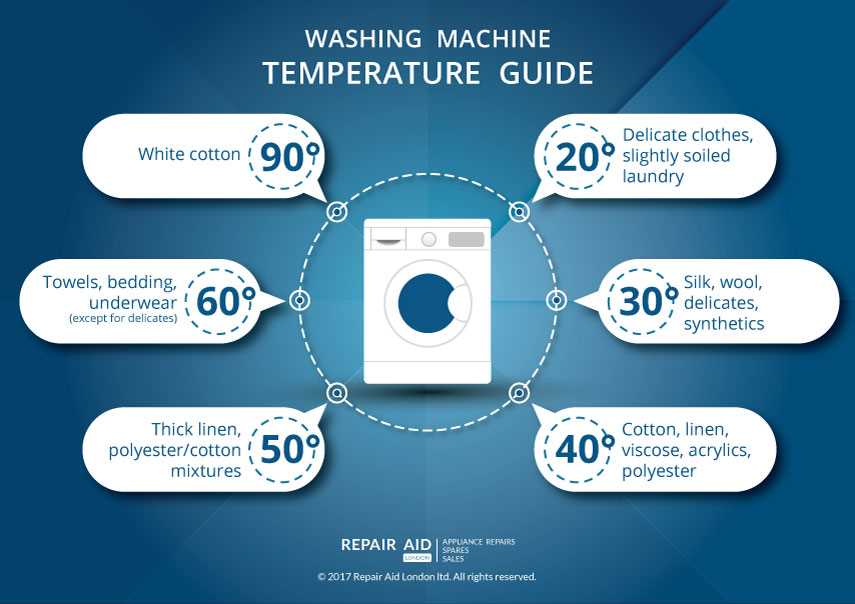
Choosing the right water temperature for washing clothes is essential for both effective cleaning and fabric care. Hot water is best for heavily soiled and germ-infested items, while warm water is suitable for everyday clothing. Cold water is gentle on fabrics and helps prevent color fading. Consider the specific needs of your clothes and adjust the water temperature accordingly to ensure optimal results. Lastly, always check the care labels on your garments for temperature recommendations to avoid any damage or shrinkage.
Choosing the Ideal Warm Water Temperature
When it comes to washing clothes, using the right water temperature is essential to achieve the best results. While some fabrics and stains require hot water for effective cleaning, others may be damaged by high temperatures. Therefore, choosing the ideal warm water temperature is crucial to ensure the longevity and cleanliness of your garments.
Factors to Consider
- Fabric Type: Different fabrics have different temperature requirements. Delicate fabrics like silk or wool should be washed in cold or lukewarm water to avoid shrinking or warping. On the other hand, sturdy fabrics like cotton or linen can tolerate higher temperatures.
- Stain Type: Certain stains, such as oil or grease, are best removed with hot water. Hot water helps to dissolve the stains and break up the molecules, making them easier to remove. For other types of stains, warm water may be sufficient.
- Colourfastness: Before washing colored garments in warm water, it is important to check their colorfastness. Some dyes may bleed or fade in warm water, resulting in color transfer or dullness. To avoid this, wash colored items in cold water or use a color-protecting detergent.
Ideal Warm Water Temperatures
To simplify the process of choosing the ideal warm water temperature, refer to the following guidelines:
| Fabric Type | Ideal Warm Water Temperature |
|---|---|
| Cotton | Warm (around 40-60°C) |
| Linen | Warm (around 40-60°C) |
| Polyester | Lukewarm (around 30-40°C) |
| Silk | Cold or lukewarm (below 30°C) |
| Wool | Cold or lukewarm (below 30°C) |
| Delicates | Cold or lukewarm (below 30°C) |
Keep in mind that these temperatures are just recommendations and may vary depending on the specific instructions provided by garment manufacturers or care labels.
By considering the fabric type, stain type, and colorfastness, you can choose the ideal warm water temperature for your laundry needs. Remember to always follow the garment care instructions and use a suitable detergent to ensure optimal cleaning results.
The Impact of Warm Water Temperature on Different Fabrics

When it comes to washing clothes, the water temperature can have a significant impact on how well your garments are cleaned. While cold water is suitable for delicate items, warm water can be more effective in removing dirt and stains from different fabrics.
Cotton
Cotton is a popular fabric that is known for its durability and versatility. When washing cotton items, using warm water can help remove sweat, oil, and other stains more effectively. Warm water also helps to break down detergent and allows it to penetrate the fabric more easily. However, it’s important to check the care label on your cotton garments before washing, as some may require cold water to prevent shrinking or color fading.
Polyester
Polyester is a synthetic fabric that is commonly used in clothing and household items. It is known for its wrinkle-resistant properties and ability to retain its shape after washing. Warm water is generally safe for washing polyester items, as it helps to remove oil and stains without causing any damage. However, it’s always a good idea to check the care label for specific instructions.
Wool
Wool is a delicate fabric that requires special care when washing. Warm water can cause wool to shrink, so it’s generally recommended to wash wool items in cold water or use a gentle hand wash cycle. Cold water helps to maintain the integrity of the wool fibers and prevents them from becoming misshapen or damaged.
Silk
Silk is a delicate and luxurious fabric that requires gentle handling. Warm water can cause silk to shrink and lose its luster, so it’s best to wash silk items in cold water or use a specialized silk detergent. Cold water not only helps to preserve the natural sheen of silk but also prevents the fabric from becoming distorted or damaged.
Denim
Denim is a durable fabric that is commonly used in jeans and other casual clothing. Warm water can help to remove dirt and stains from denim, as well as soften the fabric for a more comfortable fit. However, it’s important to wash denim items inside out to prevent color fading and to follow the care instructions on the garment for best results.
Conclusion
While warm water can be effective in removing dirt and stains from different fabrics, it’s important to consider the specific care instructions for each garment. Always check the care label before washing and follow any recommended temperature guidelines to ensure that your clothes are cleaned effectively without causing any damage.
Tips for Achieving the Ideal Warm Water Temperature
When washing clothes, it’s important to use the right water temperature to ensure the best results. Warm water is often the ideal choice as it helps to remove stains and dirt effectively without shrinking or fading the fabric. Here are some tips for achieving the ideal warm water temperature:
1. Check the care labels
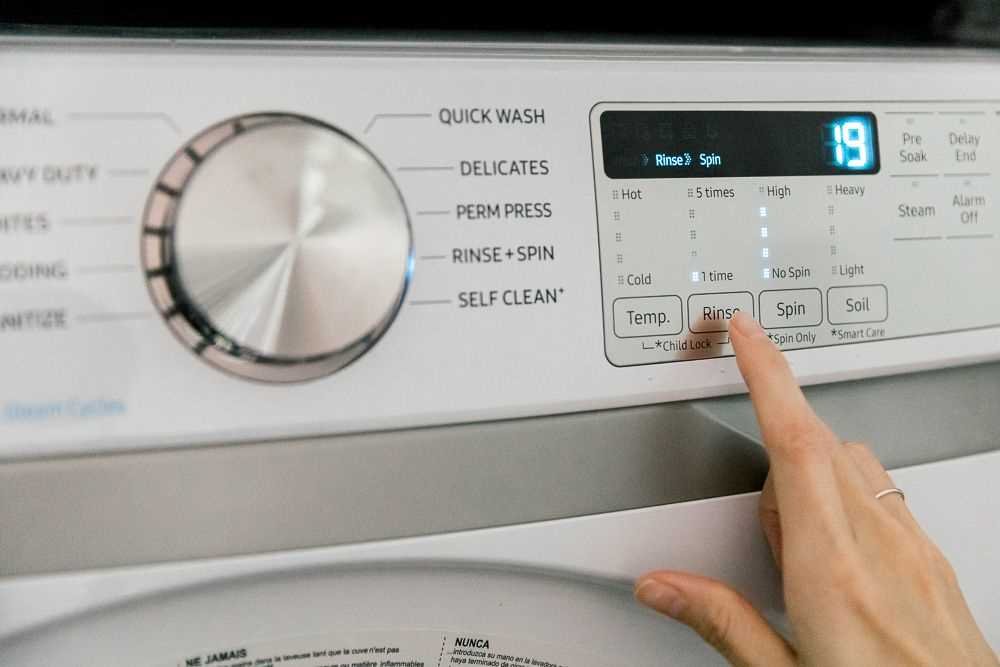
Before washing any clothing items, be sure to check the care labels. They usually provide instructions on the recommended water temperature. Some fabrics may require cold water, while others may specify warm or hot water.
2. Set your washing machine to the appropriate temperature
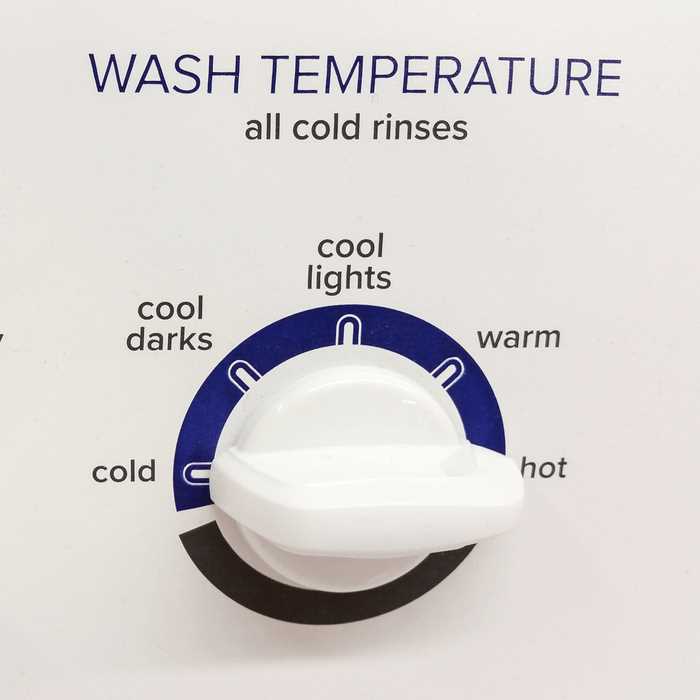
Most modern washing machines have temperature settings that allow you to choose warm water. Select the appropriate temperature according to the care labels of your clothing items. If you’re uncertain, it’s generally safe to use a warm or cool setting.
3. Use a thermometer
If you’re unsure about the accuracy of your washing machine’s temperature settings, you can use a thermometer to measure the water temperature. Simply place the thermometer in the water while it’s filling the machine to ensure it reaches the desired warm temperature.
4. Adjust the temperature manually
If your washing machine doesn’t have specific temperature settings or if you prefer to have more control over the water temperature, you can try adjusting it manually. Start by filling the machine with warm water from the tap and then add cold water until you achieve the desired temperature.
5. Avoid using hot water
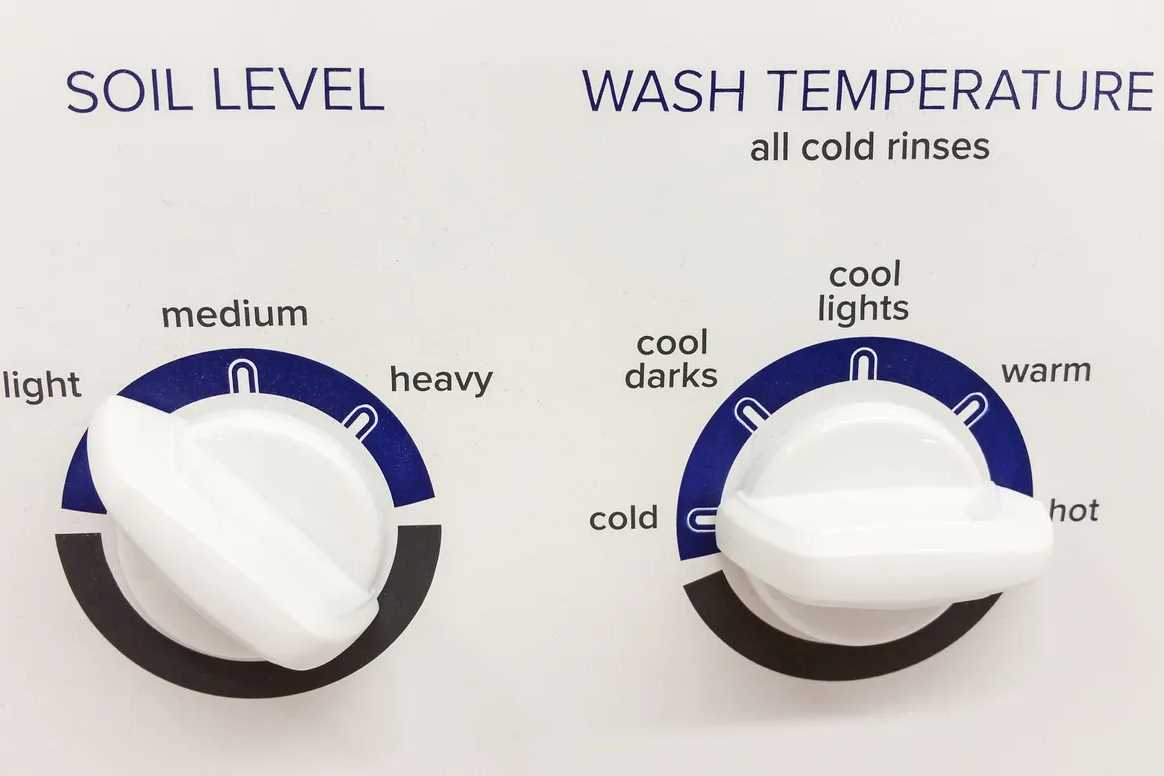
While warm water is generally ideal for washing clothes, it’s important to avoid using hot water. Hot water can cause shrinking, fading, and damage to certain fabrics. Stick to warm or cool water to ensure the longevity of your clothing.
6. Consider using a water heater
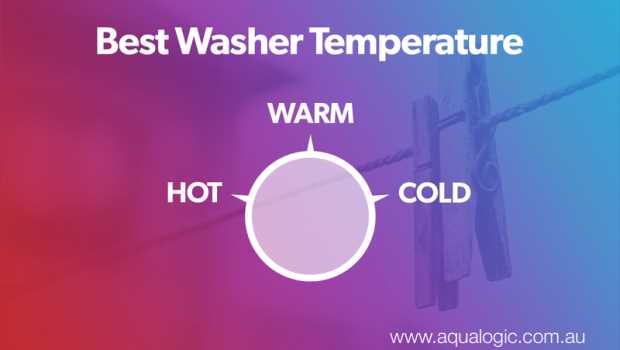
If you frequently wash clothes with warm water, you may want to consider installing a water heater. This can help ensure a consistent and reliable warm water temperature for your laundry needs.
7. Experiment and adjust as needed
Every clothing item and situation is unique, so don’t be afraid to experiment and adjust the water temperature as needed. Some stains or fabrics may require a slightly different temperature to achieve the best results. Take note of what works best for your laundry routine and adjust accordingly.
| Pros of Using Warm Water | Cons of Using Hot Water |
|---|---|
|
|
FAQ
What temperature should I set my washing machine to for washing clothes?
The ideal warm water temperature for washing clothes is usually between 30-40 degrees Celsius.
Does washing clothes in warmer water make a difference in terms of cleanliness?
Yes, washing clothes in warmer water can help remove stains and kill bacteria more effectively compared to cold water washing.
Is it safe to wash all types of clothes in warm water?
It is generally safe to wash most types of clothes in warm water, but some delicate fabrics may require cold water washing to avoid damage.
What are the advantages of washing clothes in warm water?
Washing clothes in warm water can help to better dissolve detergent, remove grease and oils, and provide a more thorough clean compared to cold water washing.
Can washing clothes in warm water help improve the longevity of the fabric?
Yes, washing clothes in warm water can help prevent shrinking and fading of the fabric, thus improving its longevity.
What is the ideal warm water temperature for washing clothes?
The ideal warm water temperature for washing clothes is typically between 40°C (104°F) and 50°C (122°F).
Why is warm water more effective for washing clothes than cold water?
Warm water is more effective for washing clothes than cold water because it helps to dissolve detergent more effectively, allowing it to penetrate and remove dirt and stains from the fabric fibers.


